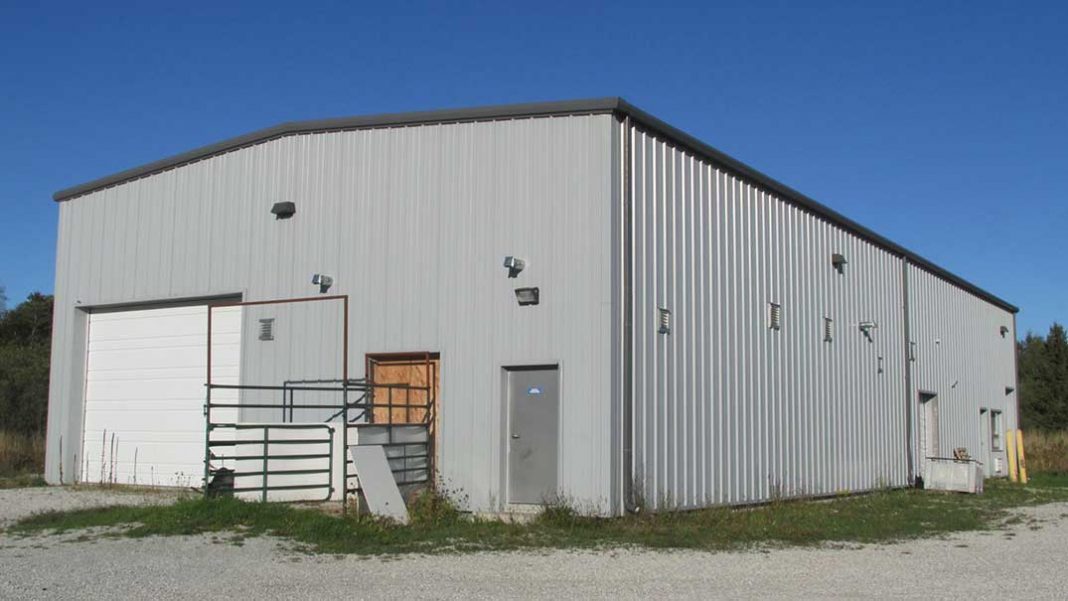Abattoir purchased by Andy Stronach
PROVIDENCE BAY – The Manitoulin Island Community Abattoir (MICA) has been sold to Andy Stronach, the son of auto parts billionaire Frank Stronach, with the closing date for the sale having taken place on November 15.
“The abattoir is now official sold,” stated Birgit Martin, chair of MICA, on Saturday. She said the local abattoir, “was sold to technically an obscure named company, but it is owned by Andy Stronach. He has farming interests on Manitoulin Island, Massey and Prince Edward County. From our perspective, as a board we are pleased that the new owners will continue it as an abattoir and are going to be expanding the services provided. They have the resources and the best interest of the business and local producers at heart.”
“The buyer plans to carry on the business as usual, with the continued services for customers,” said Ms. Martin. She noted, “they will be expanding the processing, cutting and wrapping of products (to the services provided). So they will be hiring a full-time butcher. And the current staff will remain.” She pointed out, “I have been dealing with Mr. Stronach’s business partner in Massey, George McGaffin.”
“It will be business as usual for now,” said Mr. McGaffin, who will be the chief operating officer of the abattoir. He is a business partner of Mr. Stronach’s and calls himself “a lifetime farmer. I take care of the agricultural enterprises for Andy (Stronach). He wants to develop his own brands of organic beef and bison, and wants to work with all local Island producers to finish more cattle and other animals and help to develop and market their own products. We want more people to use the abattoir and want to work hand-in-glove with producers on the Island to develop, produce their own brands and provide them with more exposure. We want to work with as many local producers as possible.”
“And he encourages any local producer to get in touch with him or myself to work out long-term programs,” said Mr. McGaffin. “We are here to process the animals for the local producers and use the abattoir for what initially was to be an abattoir business.”
Mr. McGaffin explained, “right now we are looking at starting a budget process and looking into what the government allows in the square footage of the facility that is being operated.”
“(Current) staff at the facility will remain the same,” said Mr. McGaffin. “But obviously, as there is growth we would like to add employees. But our first priority will be to get the processing numbers up and creating more activity for current employees.”
“Andy and I are eager to meet with local producers,” stated Mr. McGaffin. “Early in the new year we want to host a meet-and-greet in, say, a community hall central on the Island; and producers can keep up to date on this and other developments in your newspaper. We look forward to meeting local producers and stakeholders in the industry.”
“It’s going to be business as usual at the abattoir for now; I think until we get a real good handle, we need to meet with the producers to find out what they want and what is expected as well,” continued Mr. McGaffin. “Agriculture and abattoirs are part of the community and very much needed in Ontario.”
As was reported earlier this year, the abattoir has been operated by the board while a new buyer was being sought. The 4,200 square foot abattoir opened for business in early 2013 with the goal of saving shipping costs to approved kill facilities and reducing the environmental impact of transporting products great distances. The facility is provincially inspected by the Ontario Ministry of Agriculture, Food and Rural Affairs (OMAFRA).
MICA secured over $1.3 million in funding in 2012 from a variety of sources. This enabled them to hire staff for the storefront and abattoir operation as well as fund the construction of the plant.
Ms. Martin reported earlier this year the abattoir has been run by a volunteer board of directors and the board can’t do any more to run the business effectively. She explained at the time there needs to be a marketing effort and there needs to be day-to-day management. The board can’t do this, she said. She noted there are six members on the board who are all farmers that run their own personal operations and work for MICA in a volunteer capacity. The board decided to sell the facility to enable it to grow beyond the means of its current members.
According to MICA board members, the facility could easily handle a measured increase in production as-is, or large growth with the addition of a processing facility.
Mr. McGaffin noted there is one other thing new with the purchase of the local abattoir and that has to do with its name. The former Manitoulin Island Community Abattoir will now be called Limestone Abattoir Inc. “Manitouln is a limestone island and has its own unique identity. We farm in two similar limestone areas, Manitoulin and Prince Edward County.





